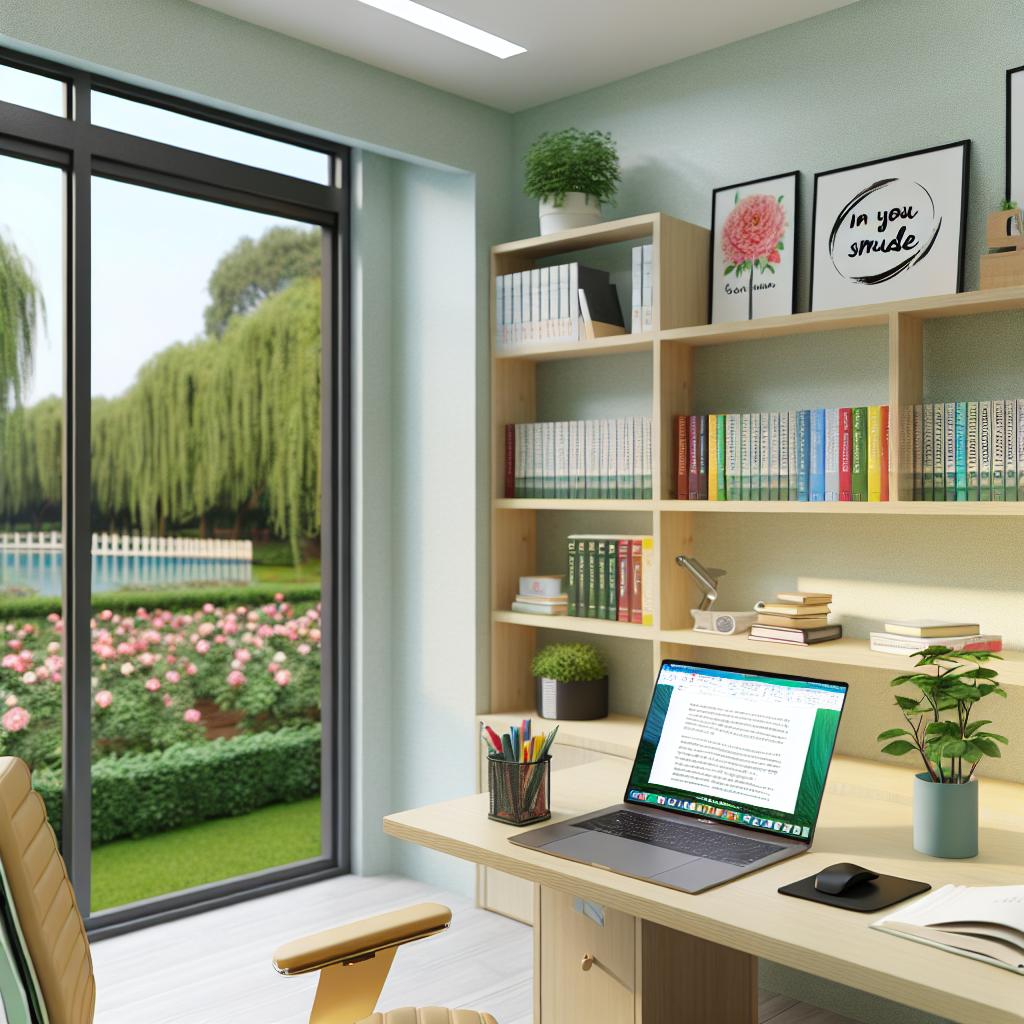
Unlock the secrets to creating a study space that boosts productivity and positivity, ensuring academic success.
Selecting the Ideal Location for Your Study Space
The journey to academic success begins with choosing the right environment. Your study space should be a dedicated area that's free from the hustle and bustle of household activities. It's essential to select a location that minimizes distractions, whether it's a quiet corner of your bedroom, a secluded spot in the library, or even a peaceful area in a local café. The key is consistency; use this space exclusively for studying to create a strong mental association between the location and your academic work.
When selecting your study spot, consider factors such as accessibility, noise level, and the likelihood of interruptions. A place that's too comfortable might encourage napping over note-taking, while a location too rigid could hinder your ability to stay focused for long periods. Balance is essential.
Incorporating Elements of Nature for Enhanced Focus
Incorporating natural elements into your study space can have a profound impact on your concentration and stress levels. Studies have shown that exposure to nature can boost cognitive function and mental well-being. If possible, position your desk near a window with a view of greenery. Indoor plants can also purify the air and add a touch of tranquility to your study environment.
Natural materials like wooden desk accessories or stone paperweights can create an organic feel. Additionally, the presence of water, such as a small desktop fountain, can provide calming background noise that enhances focus.
Optimizing Lighting and Comfort to Boost Productivity
Good lighting is critical for maintaining focus and avoiding eye strain. Natural light is the best option, as it has been shown to improve mood and energy levels. If you're studying at night or have limited access to natural light, invest in a quality desk lamp that provides bright, direct light without glare. Consider bulbs that mimic natural light to keep your circadian rhythms in check.
Comfort is also vital. Choose an ergonomic chair that supports your back and promotes good posture. Your desk should be at a height that allows your arms to rest comfortably while typing, and your computer screen should be at eye level to prevent neck strain.
Minimizing Distractions in Your Study Environment
Distractions can derail even the most disciplined student. To minimize distractions, start by identifying what commonly interrupts your study sessions. Is it noise from the street, the temptation to check your phone, or the clutter on your desk? Once identified, take steps to eliminate or reduce these distractions. Noise-cancelling headphones can block out external sounds, while app blockers can keep you from mindlessly scrolling through social media.
Keep your study area tidy and organized. Clutter can be a visual distraction and can make it harder to find necessary materials, leading to frustration. Have a place for everything, and keep everything in its place.
Personalizing Your Space for Ultimate Inspiration
Your study space should be a reflection of what inspires and motivates you. Personalizing your area with items that bring you joy can make a significant difference in your study habits. Decorate with inspirational quotes, artwork, or photos of loved ones. Choose accessories in your favorite colors, or display mementos that remind you of your goals and achievements.
However, be mindful not to overdo it. Too much personalization can turn your study space into a distraction. Aim for a balance that creates a positive and motivating atmosphere without pulling your focus away from your studies.


.jpg)
.jpg)


.jpg)




.png)





0 Comments